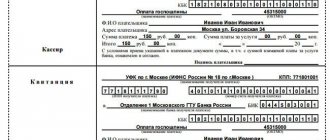The state fee to the arbitration court in 2021 is provided for filing a claim of a property and non-property nature. In the first case, this may be an appeal of the decision of the Federal Antimonopoly Service or other government agencies or services in the manner prescribed by Article 198 of the Arbitration Procedure Code of the Russian Federation. In the second case, these are most often disputes between the parties to the contract, including about its termination, debt collection and penalties. The state fee is always paid by the one who applies for judicial assistance. To find out how much you will have to pay, use the calculator.
Cassation appeal in a civil case
The amount of the state fee for filing a cassation appeal in a civil case against a decision of a magistrate or a district court of general jurisdiction is established by paragraphs. 9 clause 1 art. 333.19 of the Tax Code of the Russian Federation: 50% of the state duty payable when filing a claim of a non-property nature, namely:
- for individuals - 150 rubles;
- for organizations - 3,000 rubles.
It does not matter whether the case is of a property or non-property nature, and whether the claim is subject to assessment. When applying to the cassation office again, the state duty is paid in the same amounts.
About the calculator
Calculations related to state fees for claims filed in arbitration courts can become difficult due to the multiplicity of legal acts regulating their amount. For example, claims that combine several claims may be subject to state duty at different percentage rates, or have a clearly established amount. In order to avoid complications or incorrect calculations, we recommend that you use the state fee calculator for the arbitration court.
How to use the calculator
Step 1. In the “Plaintiff” list, select who is the plaintiff, that is, who files the claim with the demands. This can be either an individual or a legal entity. The last option is selected by default.
Step 2. In the “Application Type” list, indicate what type of claim you are filing. This may be a property or non-property proceeding, or an appeal or cassation complaint.
Step 3. If you chose a property claim, you will need to indicate the amount of the claim. Enter it in the field of the same name. The amount of state duty will be displayed automatically. This setting option will be needed to collect penalties.
Step 4. If you have chosen a non-property application or an appeal or cassation complaint, the “Type of appeal” list will open. Find the appropriate item in it and mark it. The amount of the state duty will automatically be displayed at the top of the page.
For example, to terminate a government contract, you need to select the type - a statement of a non-property nature, and the type of application - the very last item “Other statements of a non-property nature, including statements of recognition of rights, statements of an award to perform duties in kind.”
If you change any of the parameters, the fee amount will also automatically change.
IMPORTANT!
Don’t forget, if the claim contains both property and non-property claims, you will have to pay two fees for each type of claim!
Cassation appeal against the decision of the arbitration court on an economic dispute
The state fee for a cassation appeal in the arbitration process is also set at 50% of the state fee for filing a claim of a non-property nature - 3,000 rubles (subparagraphs 4 and 12 of paragraph 1 of Article 333.21 of the Tax Code of the Russian Federation).
The state duty is set at the same rate for applicants - legal entities and individuals - individual entrepreneurs.
The state fee is paid for filing a cassation appeal in relation to:
- decisions and rulings of the arbitration court in the case;
- rulings on refusal to accept a claim;
- rulings to leave the claim without consideration,
- in the case of challenging the decisions of the arbitration tribunal,
- in cases of issuing writs of execution for the forced execution of arbitration court decisions, as well as refusal to issue writs of execution.
Payment of state duty for other acts of the arbitration court depends on whether the corresponding application was paid with state duty during consideration in the first instance.
Competence of arbitration
To obtain error-free results for calculating the state duty, you must enter the correct initial data in the calculator field.
To determine the correctness of this data, you first need to understand the competence of arbitration courts. In any of the claims subject to arbitration, we are talking, first of all, about disputes between legal entities. In addition, the arbitration court has jurisdiction over:
- claims related to bankruptcy of individuals;
- claims and statements containing demands for the repeal or modification of regulations in the field of business activity;
- claims arising from administrative law (not to be confused with the Code of Administrative Offences) concerning demands for the cancellation of decisions of government agencies;
- applications for cancellation of arbitration decisions.
Cassation appeal in an administrative case
According to the rules of the Code of Administrative Proceedings (CAC), cases involving administrative claims, challenges to regulatory legal acts, actions and decisions of officials, and other public law disputes are considered (Article 1 of the Code of Administrative Proceedings of the Russian Federation). These cases in the cassation instance are considered by the courts of general jurisdiction of the constituent entities of the Russian Federation, or the Supreme Court of the Russian Federation.
Appeals against decisions made through the cassation procedure are made to a higher court of general jurisdiction.
Depending on who files a cassation appeal in an administrative case, the state fee is paid in the amount of:
- 150 rubles for individuals (including individual entrepreneurs) and
- 3000 rubles for legal entities (Article 333.19 of the Tax Code of the Russian Federation).
Cassation appeals for certain types of cases are not subject to state duty:
- if the complaint is filed in connection with a court decision on an administrative claim challenging the actions of a bailiff. Such applications are subject to exemption from payment of state duty in accordance with paragraphs. 1 clause 7 art. 333.36 (Appeal ruling of the Primorsky Regional Court dated June 1, 2017 in case No. 33a-5692/2017);
- the applicant has benefits.
conclusions
A mandatory condition for consideration of the case is the payment of the state fee to the arbitration court. The payment amount depends on the following points:
- who is the applicant - an individual or legal entity;
- type of treatment;
- size of requirements.
Preparing for a trial is a painstaking and responsible procedure that determines the outcome of the case. Correctly calculating the amount of state duty to the arbitration court when filing a claim will eliminate the need to return documents for revision and save time.
Sources
- https://urstart.ru/razmer-gosudarstvennoj-poshliny-v-arbitrazhnyj-sud/
- https://assistentus.ru/kalkulyator-gosposhliny-v-arbitrazhnyj-sud/
- https://goskontract.ru/calc/gosposhlina-arbitraj
- https://clubtk.ru/calcs/poshlina-arbitrazh
- https://www.vsrf.ru/lk/calculator/list
Complaint against a decision in a case of an administrative offense
Administrative cases regarding offenses provided for by the Code of Administrative Offenses of the Russian Federation, depending on the type of case, can be considered by magistrates, judges of district courts, garrison military courts, or by arbitration courts or other government bodies (Article 23.1 of the Code of Administrative Offenses of the Russian Federation). The decision made can be appealed according to the rules established by Art. 30.1 Code of Administrative Offenses of the Russian Federation:
- if made by a judge - to a higher court (of general jurisdiction or arbitration);
- if accepted by a collegial body - to the district court at its location;
- accepted by an official - to a higher body or official, to a specially authorized body or to the district court at the place of consideration of the case;
- if accepted by authorities created in accordance with the law of a constituent entity of the Russian Federation - to the district court at the place of consideration of the case.
Expert opinion
Lawyer Alexander Vasiliev comments
A complaint against a resolution or decision in a case of an administrative offense is not subject to state duty (Article 30.2 of the Code of Administrative Offenses of the Russian Federation, paragraph 4 of Article 208 of the Arbitration Procedure Code of the Russian Federation, Resolution of the Plenum of the Supreme Court of the Russian Federation dated March 24, 2005 No. 5 “On some issues arising in the courts when applying the Code of the Russian Federation on Administrative Offenses”).
Decisions of officials made as a result of an appeal can be appealed to a court, and if the case has already been considered by a court, to a higher court according to the rules of Article 30.9 of the Code of Administrative Offenses of the Russian Federation. When filing subsequent complaints (including cassation), the state duty is also not paid (clause 3 of Article 30.9 of the Code of Administrative Offenses of the Russian Federation).
How to calculate and pay
To calculate the required amount depending on the circumstances, it is most convenient to use a special calculator, which can be found on the website of the desired arbitration court. If the claim simultaneously contains both property and non-property claims, it is necessary to calculate and pay simultaneously the amount of the fee established for both one and the other claims.
Details for the transfer can be found on the official website of the arbitration court. After completing the calculations, the system immediately allows you to select the “Fill out payment order” function and generate a payment document. If submitting documents electronically, you must also provide proof of payment of the fee. If it turns out that it was paid in a smaller amount than necessary, the arbitration judge will leave the application without progress and set a deadline for eliminating the deficiencies. The meeting will be scheduled only after payment in full has been received.
Payment of state duty for individual entrepreneurs
When filing a cassation appeal against a decision of a magistrate or a court of general jurisdiction, an individual entrepreneur pays a state fee in the amount established for individuals. The Tax Code of the Russian Federation does not provide for special amounts of state duty for individual entrepreneurs. In accordance with the law, an individual entrepreneur is not a legal entity. Therefore, he pays a fee in the amounts established for individuals (“Review of the judicial practice of the Supreme Court of the Russian Federation No. 1 (2016)”, approved by the Presidium of the Supreme Court of the Russian Federation on April 13, 2016) - i.e. 150 rubles.
In arbitration courts, a uniform amount of state duty on cassation appeals has been established for all applicants who do not have benefits - 3,000 rubles.
Payment details
Samples of payment documents are provided on the websites of arbitration courts. The payment order (receipt) must contain:
- name of the payer and his details (payment is made from the applicant), name of the payer’s bank, his BIC;
- name of the recipient (IFTS of the corresponding region), details, recipient’s bank, its BIC;
- KBK (budget classification code);
- purpose of payment (it is important to accurately indicate the type of request).
Payment of the state fee to the arbitration court must be made precisely to the institution where the case will be considered. Therefore, you should make sure that the money is sent to the correct details.
Benefits for some applicants
Exemption from payment of state duty for disabled people
Disabled people of groups I and II are exempt from paying state fees on cassation appeals in cases considered by the Supreme Court of the Russian Federation, courts of general jurisdiction, and justices of the peace (Clause 2, Part 2, Article 333.36 of the Tax Code of the Russian Federation)
Benefits for combat veterans
In accordance with subparagraph 3 of paragraph 2 of Art. 333.36 of the Tax Code of the Russian Federation, combat veterans and military service veterans are exempt from paying state fees when filing cassation appeals if they seek protection of their rights directly established by the legislation on veterans (in particular, paragraph 1 of Article 16 of the Federal Law of January 12 1995 No. 5-FZ “On Veterans”). For other types of cases, exemption is not provided for them, and the state duty must be paid in the required amount.
Complaints from workers in cases of protection of labor rights
An employee filing a cassation appeal in court regarding the protection of his rights, recovery of wages, etc. exempted from paying state duty on the basis of paragraphs. 1 clause 1 art. 333.36 Tax Code of the Russian Federation. This benefit does not apply to the employer.
Appealing the FAS decision
Article 52 of the Federal Law of July 26, 2006 No. 135-FZ “On the Protection of Competition” states that any decision or order of the antimonopoly authority can be appealed within three months from the date of its adoption. This can be done in court, which means it is necessary to calculate the state duty to the arbitration court when appealing the FAS decision. Since this claim has no price and is not a property claim, there is a fixed fee in this case. According to the norms of clause 3 of Article 333.21 of the Tax Code of the Russian Federation, it is 3,000 rubles. This amount depends on the arbitration authority to which the applicant applies: in appeals and cassation, you need to pay 50% of the initially paid state duty, and when applying in a supervisory manner to the Supreme Court - the same 3,000 rubles.
Exemption of consumers from state duty
Plaintiffs in claims related to violation of consumer rights are exempt from paying state fees (clause 3 of article 17 of the Law of the Russian Federation of February 7, 1992 No. 2300-1 “On the Protection of Consumer Rights”, as well as subclause 4 of clause 2 of article 333.36 Tax Code of the Russian Federation). This benefit is not limited only to appealing to the court of first instance. It also applies to exemption from paying state fees when filing cassation appeals.
The benefit is provided only to consumers, i.e. individuals who go to court to protect their rights. If another person files a cassation appeal (for example, an organization against which a decision was made on a consumer’s claim), the benefit does not apply to him.
State fee for reinstating the deadline for cassation appeal
A petition to restore the deadline for filing a cassation appeal is not subject to state duty, since the Tax Code does not establish the amount of state duty for such appeals.
Cassation private complaint
Private cassation appeals are filed against court rulings on certain procedural issues. As a general rule, when filing cassation appeals against rulings, the state fee is not paid. The exceptions are the definitions listed in paragraphs. 12 clause 1 art. 333.21 of the Tax Code of the Russian Federation:
- on refusal to accept a statement of claim (statement) or an application for the issuance of a court order,
- on termination of proceedings in the case,
- to leave the claim without consideration,
- rulings in a case challenging arbitration decisions,
- on the issuance of writs of execution for the forced execution of arbitration court decisions and on the refusal to issue writs of execution.
Other rulings (including the return of the appeal to the applicant) can be appealed in cassation without paying a state fee (Decision of the Supreme Court of the Russian Federation dated November 12, 2018 N 307-ES18-18899 in case N A56-23955/2018).
Expert opinion
Lawyer Alexander Vasiliev comments
Not all court decisions can be appealed in cassation. A cassation appeal is an exclusive stage of the proceedings. For example, the Federal Law “On Insolvency (Bankruptcy)” in Article 61 establishes a list of court rulings that can be appealed in all instances. Determinations not included in this list can be appealed only in an appeal, the decision of which will be final.
Cassation appeal against a court order.
When filing a cassation appeal against a court order in arbitration proceedings, the state fee is paid in the amount of 50 percent of the amount of the state fee payable when filing a claim of a non-property nature (clause 12.1 of Article 333.21 of the Tax Code of the Russian Federation), i.e. 3000 rubles.
In civil proceedings, the amount of the state duty is established by paragraphs. 9 clause 1 art. 333.19 of the Tax Code of the Russian Federation (also 50% of the state duty payable when filing a claim of a non-property nature), namely: for citizens - 150 rubles; for legal entities - 3,000 rubles.
Cassation for divorce
When filing cassation appeals on claims for divorce, the parties are exempt from paying state fees (clause 6, clause 1, article 333.36 of the Tax Code of the Russian Federation).
Cassation appeal under the Tax Code of the Russian Federation
When considering disputes regarding the invalidation of decisions of tax authorities and the assessment of additional taxes, as well as filing cassation appeals, tax authorities (inspectorates) are exempt from paying state duties:
- in the arbitration process on the basis of Art. 333.37 Tax Code of the Russian Federation;
- in civil proceedings on the basis of paragraphs. 19 clause 1 art. 333.36 Tax Code of the Russian Federation.
Filing a cassation appeal by a third party
When filing a cassation appeal by third parties, the state fee is not paid if the third party acts in the process on the same side as the person who has already filed the cassation appeal (Article 333.20 of the Tax Code of the Russian Federation).
Plenum of the Supreme Court on the use of the APC in cassation - clues for the eye
So the media told us the good news - now we have a Resolution of the Plenum of the Supreme Court on the application of the Arbitration Procedural Code of the Russian Federation when considering cases in the arbitration court of cassation.
What caught your eye when reading it?
1) A transfer of the theses of the 36th Plenum of the Supreme Arbitration Court on the APC in the appellate instance regarding the appeal under 42 of the APC is visible (criteria for determining interest, paragraph 2):
Other persons, by virtue of Part 3 of Article 16 and Article 42 of the Code, include persons on whose rights and obligations a judicial act has been adopted.
In this regard, persons not participating in the case, both indicated and not indicated in the reasoning and/or operative part of the judicial act, have the right to appeal it in cassation proceedings if it is adopted on their rights and obligations, that is, given a judicial act affects their rights and obligations, including creating obstacles to the exercise of their subjective rights or the proper fulfillment of obligations in relation to one of the parties to the dispute.
True, it is tamed by a standard set of theses, which makes it possible to arbitrarily refuse such a complaint:
3. …
When considering a case on a cassation appeal of a person who did not participate in the case, the cassation court determines whether the adopted judicial act affects the rights or obligations of the applicant, and, having established this, decides on the issue of canceling the judicial acts of the courts of first and appellate instances, guided by paragraph 4 of part 4 Article 288 of the Code.
Actually, the main intrigue here is that now it seems like the application of paragraph 4 of part 4 of Article 288 of the Arbitration Procedure Code of the Russian Federation can be interpreted as permissible only in the course of considering a complaint under 42 of the Arbitration Procedure Code of the Russian Federation - that is, not “ex officio” by the court itself, but only by a complaint by a person on whose rights and obligations the appealed judicial act was adopted.
If this is so, then it turns out that the sad tendency (especially clearly manifested by the Intellectual Rights Court) to deny persons participating in a case references to paragraph 4 of part 4 of Article 288 of the Arbitration Procedure Code of the Russian Federation is finally fixed at the level of the Plenum, and there is no more unconditional basis, subject to verification by the court itself in accordance with Part 2 of Article 286 of the Arbitration Procedure Code of the Russian Federation no longer exists.
At the same time, the full power of the uniformity of consideration of complaints under 42 Arbitration Procedure Code of the Russian Federation can be felt, for example, by comparing:
— decision of the IP dated 05/19/2020 in case A56-7308/2019, in which he took pity on the corporations Exxon Mobile Corporation, Castrol Limited, MOTUL SA, TOTAL SA, SHELL BRANDS INTERNATIONAL, TOTAL HOLDINGS SAS, NISSAN JIDOSHA KABUSHIKI KAISA in the case of refusal in bringing the offender to justice under Article 14.10 of the Code of Administrative Offenses (where, as the SIP itself admits, their participation is not necessary)
- and the resolution of the IP dated 08/01/2017 in case A40-147121/2015, where he refused to allow the composer Machulenko to join the case in a dispute over the offshore’s collection of compensation for videos with his music in the absence of an offshore agreement with the composer (that is, with a proven defect plaintiff's title).
2) A situation quite interesting for procedural games arose with the suspension of proceedings on a cassation appeal (an excellent way to slow down the consideration of any cassation appeal, however, by filing an application for review of newly opened ones before filing a cassation appeal):
If, after the court has accepted for proceedings an application for review of a judicial act due to new or newly discovered circumstances, a cassation appeal is filed against this judicial act, then the court to which the complaint was filed suspends consideration of the complaint in relation to paragraph 1 of part 1 of Article 143 of the Arbitration Procedure Code of the Russian Federation until the entry into force into the legal force of a judicial act adopted based on the results of consideration of an application based on new or newly discovered circumstances.
After the adoption of a judicial act based on the results of consideration of such an application, the case with a cassation appeal is sent to the arbitration court of the cassation instance or the cassation appeal is returned.
If an application for review of a judicial act based on new or newly discovered circumstances is filed with the court of the first instance of appeal after the cassation appeal has been accepted for processing by the arbitration court of the cassation instance , the court to which the application for review of a judicial act based on new or newly discovered circumstances is filed, suspends the proceedings on this application in relation to clause 1 of part 1 of Article 143 of the Arbitration Procedure Code of the Russian Federation until the adoption of a judicial act based on the results of consideration of the cassation appeal.
3) A rather interesting situation emerged in the powers of the cassation court in terms of verifying circumstances and evidence:
28. As follows from parts 1 and 3 of Article 286 of the Code, the cassation court, when checking the legality of judicial acts adopted by the courts of the first and appellate instances, establishes the correct application of the norms of substantive law and norms of procedural law, and also checks the compliance of the conclusions of the courts of the first and appellate instances on the application of the rule of law to the circumstances established by them in the case and the evidence available in the case , based on the arguments contained in the cassation appeal and objections to the complaint.
In particular, taking into account the arguments of the party about the inconsistency of the conclusions of the courts of the first and (or) appellate instances on the application of the rule of law with the circumstances established by them in the case and the evidence available in the case , the cassation court may come to the conclusion that the courts incorrectly applied the rules of substantive or procedural law , which may be indicated in the reasoning part of the judicial act.
This continues in paragraph 31:
31. If, on the basis of Part 3 of Article 286 of the Code, a discrepancy between the conclusions of the courts of the first and appellate instances on the application of the rule of law is revealed with the circumstances established by them in the case and the evidence available in the case, the cassation court shall refer the case for a new trial.
When canceling judicial acts on this basis, the decision of the cassation court should indicate the factual circumstances of the case established by the courts of the first and appellate instances, the conclusions they made on the basis of these circumstances, as well as the reasons why the cassation court believes that the conclusions of the courts of the first and appellate instances authorities do not correspond to the circumstances of the case.
Such motives may be, in particular, contradictions between the conclusions about the application of the rule of law and the factual circumstances established by the courts , incorrect determination by the court of the nature of the disputed material legal relationship, failure of the courts to fulfill the obligation to determine the circumstances that are important for the correct consideration of the dispute.
And again in paragraph 32:
A different legal qualification of existing legal relations is not a revaluation of evidence , since it represents the application of the rules of law to the evidence already available in the case. In this case, the case may be sent for a new consideration on the basis of paragraph 3 of part 1 of Article 287 of the Arbitration Procedure Code of the Russian Federation, if in order to resolve the dispute and apply the rules of law, it is necessary for lower courts to establish circumstances that were not previously established by the courts, and there is a dispute between the parties as to whether these data took place circumstances.
in conjunction with the 33rd:
Violation by the courts of first and appellate instances of the principles of equality and adversarial rights of the parties (Article 8 and the Arbitration Procedure Code of the Russian Federation) may be grounds for the annulment of judicial acts if the violations led to the fact that during the consideration of the case, circumstances that were important for the correct application of laws and other laws regulatory legal acts.
So the standard of proof should be...
4) It’s also nice to see that the 31st paragraph codifies the well-known “Sviridenko clause” (in memory, no less) about adversarial behavior, but, as for me, it’s not a full-fledged procedural estoppel (the prohibition to prove circumstances after cancellation in cassation). not mature enough:
When deciding whether to send a case for a new trial to the arbitration courts of cassation, it is necessary to take into account that, based on the principles of equality of parties, adversarial nature, and the directness of the trial (Articles 8–10 of the Arbitration Procedure Code of the Russian Federation), a person participating in the case should not, due to repeated referral of the case to a new consideration should be freed from the adverse consequences of failure to perform the procedural actions required by the court of first instance, and it should not thereby be given the opportunity, not provided for by procedural law and contrary to the principle of legal certainty of repeated consideration of the case according to the rules of trial in the court of first instance with the submission of additional primary documents to the case file , new calculations and justifications for the stated requirements.
5) In paragraph 28 there is another interesting clause about the emancipation of cassation:
At the same time, when making a decision, the court independently determines the nature of the controversial legal relationship that has arisen between the parties to the case, as well as the norms of legislation to be applied, and may not apply the laws and other normative legal acts referred to by the persons participating in the case (clause 12 of part 2 of Article 289 of the Arbitration Procedure Code of the Russian Federation).
Taking this into account, when determining the limits of consideration of a case, the cassation court is not bound by the legal justification of the arguments of the cassation appeal and the objections presented by the parties, and is not limited in the conclusions that it makes based on the results of the inspection.
At the same time, this paragraph 12 of part 2 of Article 289 of the Arbitration Procedure Code of the Russian Federation sounds like this:
2. The decision of the arbitration court of the cassation instance must indicate:
12) laws and other regulatory legal acts that the cassation court was guided by when adopting the decision; the reasons for the adopted resolution; the reasons why the court did not apply the laws and other normative legal acts referred to by the persons participating in the case;
It is quite obvious that this norm of the Arbitration Procedure Code does not contain the words “independently”, “not connected” and “not limited”, since Part 1 of Article 286 of the Arbitration Procedure Code of the Russian Federation, specifically dedicated to this, directly excludes any kind of independence, inquisition and other obiter dictum , limiting the scope of consideration of the case by the court of cassation “ based on the arguments contained in the cassation complaint and objections to the complaint ,” not to mention the seemingly introduced professional process with the participation of certified lawyers, as well as the principles of adversarial behavior of the parties and the independence of the court.
Exactly the same thing is written for the judicial panels and the Presidium of the Supreme Court of the Russian Federation in Article 291.13 of the Arbitration Procedure Code of the Russian Federation and Article 308.12 of the Arbitration Procedure Code of the Russian Federation, respectively, however, in Part 2 of Article 291.14 and Part 2 of Article 308.11 of the Arbitration Procedure Code of the Russian Federation there are extremely significant clarifications:
2. When considering a case in cassation proceedings, the Judicial Collegium of the Supreme Court of the Russian Federation verifies the correct application and (or) interpretation of the rules of substantive law and (or) rules of procedural law by the arbitration courts that considered the case, within the limits of the arguments set out in the cassation appeal or presentation .
In the interests of legality, the Judicial Collegium of the Supreme Court of the Russian Federation has the right to go beyond the arguments set out in the cassation appeal or presentation . At the same time, the Judicial Collegium of the Supreme Court of the Russian Federation does not have the right to check the legality of judicial acts in the part in which they are not appealed , as well as the legality of judicial acts that are not appealed.
In essence, we have a creeping broad interpretation of the powers of ordinary cassation by analogy with extraordinary ones. Not otherwise, in order to reduce the burden on the extraordinary and encourage legal entropy with the imagination of the ordinary, which is spurred by the significant recognition of case law in our country (including even reviews of practice, the precedent nature of which is denied by the Constitutional Court):
By checking the correctness of the application by the courts of first and appellate instances of the norms of substantive and procedural law, the cassation court, in relation to Part 4 of Article 170 of the Arbitration Procedure Code of the Russian Federation, establishes whether the conclusions of the courts correspond to the practice of applying legal norms , determined by the decisions of the Plenum of the Supreme Court of the Russian Federation and the decisions of the Plenum of the Supreme Arbitration Court that have remained in force Court of the Russian Federation on issues of judicial practice, decisions of the Presidium of the Supreme Court of the Russian Federation and decisions of the Presidium of the Supreme Arbitration Court of the Russian Federation that have remained in force, as well as contained in reviews of judicial practice approved by the Presidium of the Supreme Court of the Russian Federation.
The same conclusion about the rehabilitation of precedent is repeated in paragraph 30:
As documents confirming the arguments and objections to the complaint, in particular, materials of judicial practice in cases with similar factual circumstances may be presented, which, in the opinion of the applicant, substantiate the correct application of the rules of substantive or procedural law by the courts of the first and appellate instances.
6) The 30th paragraph is excellent because it allows you to add new evidence in cassation:
If a person participating in the case presented evidence to the cassation court that was not accepted by the court of the first or appellate instance, in support of the argument that the court violated or incorrectly applied the rules of procedural law , which led to the adoption of an incorrect decision or resolution (expressed, for example, in refusal of the court to satisfy the petition for the inclusion of such evidence or for the requisition of evidence ), then if the cassation court comes to the conclusion that there are grounds for canceling the judicial act provided for in Part 3 of Article 288 of the Arbitration Procedure Code of the Russian Federation, the specified evidence cannot be the basis for accepting them a judicial act on the merits of the dispute. In this case, the case is sent for a new trial to the court of the appropriate instance.
At the same time, prejudice, laws of nature and other common knowledge are legitimized:
When checking the legality of judicial acts, the cassation court has the right to base its conclusions on circumstances that are generally known (part 1 of Article 69 of the Arbitration Procedure Code of the Russian Federation), prejudicially significant (parts 2–5 of Article 69 of the Arbitration Procedure Code of the Russian Federation) and indisputable (parts 2–31 of Article 70 of the Arbitration Procedure Code of the Russian Federation).
7) An important generalized clause on procedural estoppel and adversarial issues regarding jurisdiction (similar to the rules for applying a prorogation agreement) in paragraph 34:
In particular, courts must keep in mind that a person participating in the case and duly notified of the time and place of the court hearing, arguments regarding violation of the rules of jurisdiction can only be stated when considering the case in the court of first instance. In the absence of a violation of the rules on exclusive jurisdiction, intervention of the cassation court on its own initiative in the issue of jurisdiction of the case is not allowed.
Which, generally speaking, undermines the positions of VAS-1, VAS-2, the Constitutional Court, Article 288 of the APC and the Supreme Court itself regarding the illegality of the composition of the court as an unconditional basis for cancellation (i.e., not dependent on the will of the parties).
 Now there is no need to refer to the complex combination of positions of the ECHR, the Supreme Arbitration Court and the Supreme Court of the Russian Federation that legal arguments can be brought at any stage of the process, provided that they do not contain new requirements and evidence, and are also brought to the attention of persons participating in the case in advance (point 29):
Now there is no need to refer to the complex combination of positions of the ECHR, the Supreme Arbitration Court and the Supreme Court of the Russian Federation that legal arguments can be brought at any stage of the process, provided that they do not contain new requirements and evidence, and are also brought to the attention of persons participating in the case in advance (point 29):
When deciding whether to accept additions, written explanations to a cassation appeal or a response to a cassation appeal, the cassation courts must keep in mind that the parties have the right to provide purely legal justification for arguments and objections at all stages of the consideration of the case, if they are based on evidence available in the materials case, and if such additions, explanations to the cassation appeal do not contain either new requirements or new evidence, which, by virtue of the provisions of the Arbitration Procedure Code of the Russian Federation, cannot be considered and investigated by the court of cassation.
At the same time, upon receipt of additions or written explanations to the cassation appeal, the court verifies compliance by the person who sent them with the provisions of paragraphs 3 and 4 of part 4 of Article 277 of the Code. If these requirements are not met, the submitted documents will not be accepted by the cassation court.
So it goes…
Amounts of state duty on property disputes
The amount and procedure for paying state fees for applying to arbitration courts, as well as to the Supreme Court of the Russian Federation for economic disputes, are established by Article 333.21 of the Tax Code of the Russian Federation.
In property disputes where claims can be assessed, the amount of the state fee depends on the value of the claim. The higher the requirement, the more you will have to pay.
- up to 100,000 rubles - 4 percent of the claim price, but not less than 2,000 rubles;
- from 100,001 rubles to 200,000 rubles - 4,000 rubles plus 3 percent of the amount exceeding 100,000 rubles;
- from 200,001 rubles to 1,000,000 rubles - 7,000 rubles plus 2 percent of the amount exceeding 200,000 rubles;
- from 1,000,001 rubles to 2,000,000 rubles - 23,000 rubles plus 1 percent of the amount exceeding 1,000,000 rubles;
- over 2,000,000 rubles - 33,000 rubles plus 0.5 percent of the amount exceeding 2,000,000 rubles, but not more than 200,000 rubles.
For other types of disputes, the Tax Code establishes a fixed fee.






